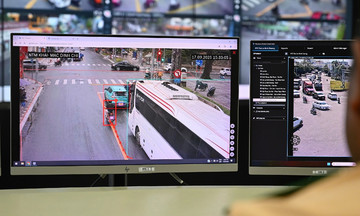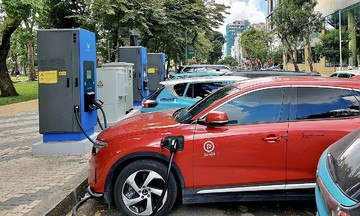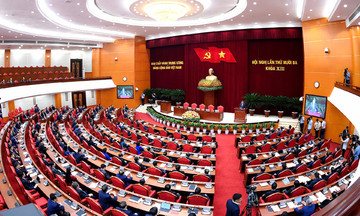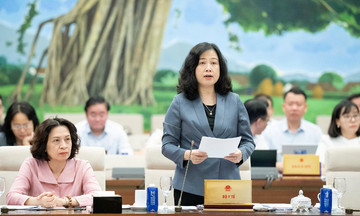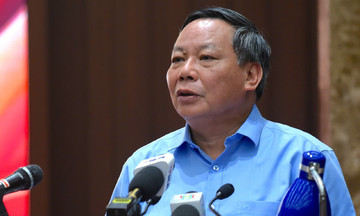This opinion was raised by Dr. Tran Du Lich, Chairman of the Consulting Council for the implementation of Resolution 98, at a scientific seminar on contributing ideas to the draft amendment and supplement to some articles of this Resolution. The seminar was co-organized by the Consulting Council for the implementation of Resolution 98 of Ho Chi Minh City and the City Development Research Institute on the afternoon of 3/9.
 |
Dr. Tran Du Lich speaks at the seminar on the afternoon of 3/9. Photo: An Phuong |
Dr. Tran Du Lich speaks at the seminar on the afternoon of 3/9. Photo: An Phuong
Resolution 98 allows Ho Chi Minh City to pilot a number of special mechanisms, including selecting strategic investors for certain special sectors, professions, and projects. For example, priority areas include building innovation centers, R&D, and high-tech transfer in IT, biotechnology, automation, new materials, and clean energy with investment capital of 3,000 billion VND or more. Semiconductor integrated circuit industry, integrated circuit components (IC), flexible electronics (PE), chips, new technology batteries, new materials, and clean energy require investment capital from 30,000 billion VND or more; and the Can Gio International Transshipment Port construction project.
According to Dr. Tran Du Lich, after more than two years, the city has not attracted any strategic investors. He cited the Can Gio International Transshipment Port project as an example, where the obstacle is Clause 7, Article 7 of the Resolution regarding the procedures for registering and selecting strategic investors. "If strategic investors, whose capacity is reviewed by the city and then invited, still have to go through a series of procedures and bidding, no one will want to come," he said.
Therefore, in this amendment, the Chairman of the Consulting Council for the implementation of Resolution 98 said that it is necessary to find ways to remove obstacles and loosen criteria to attract strategic investors, rather than "finding ways to add more restrictions as the draft is proposing".
The draft amendment to some articles of Resolution 98 proposes to add a list of priority sectors to attract strategic investors with specific fields and minimum total investment levels. For example, investing in the urban railway along the Saigon River requires capital from 6,000 billion VND; mixed urban areas require capital from 50,000 billion VND; high-class hotels, tourist areas, resorts, and entertainment complexes with golf courses and casinos require capital from 35,000 billion VND. In addition, investors must also meet the requirement of a minimum equity of 15% of the total project investment and have experience in implementing similar projects.
According to Dr. Tran Du Lich, the criteria of "having experience in investing in similar projects" is a stricter condition than the current regulations and will exclude Vietnamese businesses from large projects such as urban railways and the North-South Expressway. "Vietnam does not yet have an urban railway industry, so how can Vietnamese businesses meet the criteria of having done similar projects to qualify as the city's strategic investors," Dr. Lich said.
The expert said that if this criterion is applied, Vingroup would not be able to meet the conditions to become a strategic investor in urban railway construction while in reality they have the capacity and potential to do so. If the criteria of "having implemented similar projects" is maintained, only foreign investors will be able to meet it, which is not consistent with the goal of developing domestic enterprises. Therefore, it is necessary to consider appropriate criteria to attract strategic investors to the city's projects.
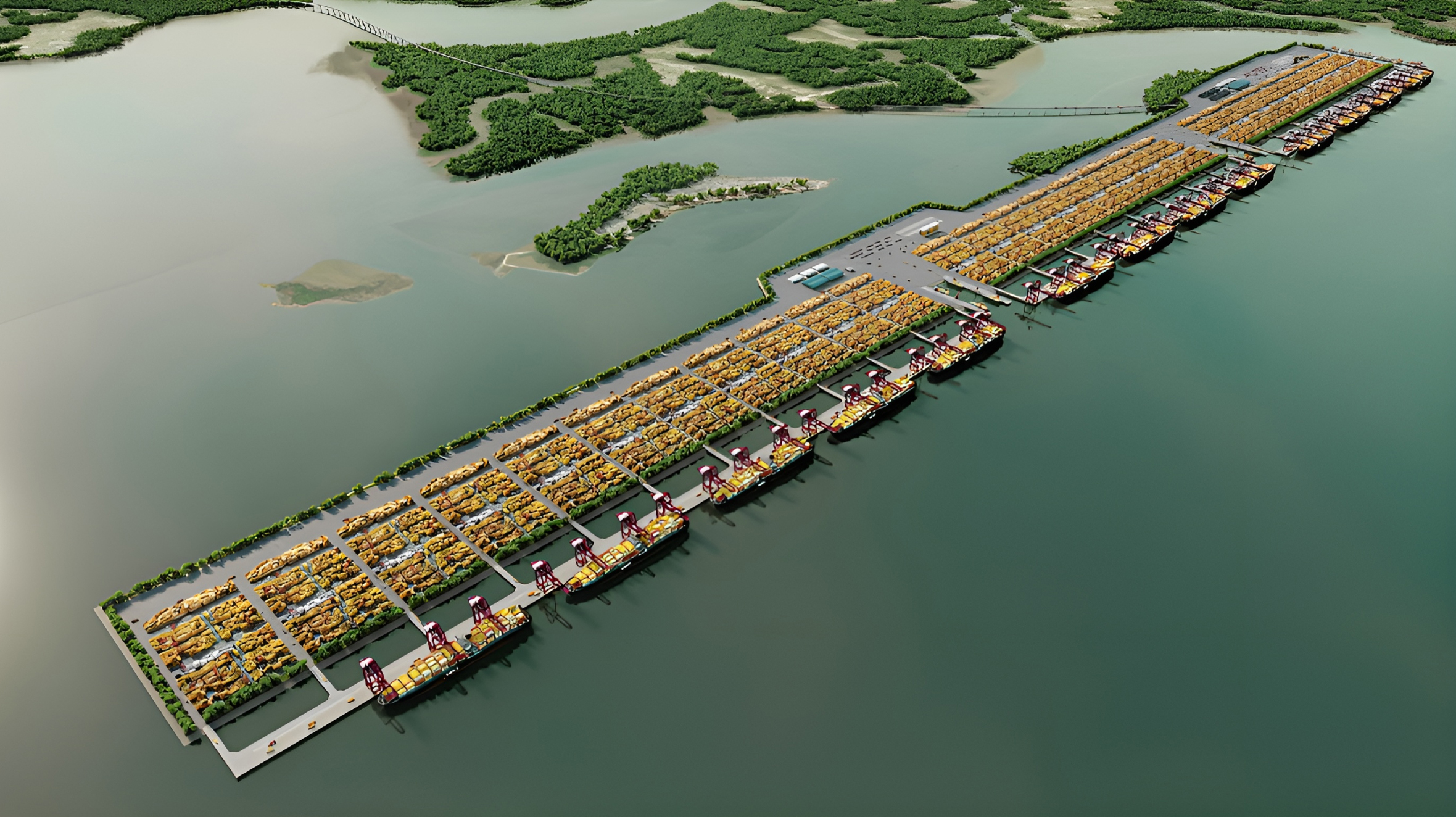 |
Perspective of the Can Gio International Transshipment Port project. Photo: Portcoast |
Perspective of the Can Gio International Transshipment Port project. Photo: Portcoast
Associate Professor Dr. Vu Anh Tuan, from Vietnamese-German University, argued that if a brand new investor participates without having experience in implementing any projects, it would be "quite risky." According to him, the criteria for selecting strategic investors need to consider management capacity as particularly important; investors must have a team of experts in the field they want to invest in. Investors also need to have commitments to long-term investment, a comprehensive project development plan, and a commitment to sharing benefits with the community.
In addition, according to the expert, considering only capital factors to select strategic investors is not enough. Dr. Tuan suggested that strategic investors need conditions such as sufficient financial capacity, with equity accounting for about 20-30% of the project capital, and a credit history of at least three years without bad debt. Besides, investors need to demonstrate their ability to mobilize capital; experience and implementation records, and deployment records.
Meanwhile, Associate Professor Dr. Tran Hoang Ngan said that the regulations on strategic investors need to be as favorable as possible by empowering the People's Council and the People's Committee of Ho Chi Minh City. "Don't set criteria that make things difficult for ourselves," he said.
According to Dr. Ngan, other localities are looking forward to the city piloting first and then following suit. Ho Chi Minh City not only contributes to the national budget but also creates ideas for legislation for the whole country. With a population of 14 million people and a GRDP expected to reach about 123 billion USD by the end of 2025, accounting for 25% of the country's GDP, the city plays an important role in the goal of national development in the new period. Therefore, Ho Chi Minh City should boldly propose to the Government to submit to the National Assembly an appropriate mechanism compatible with this goal.
Resolution 98 took effect on 1/8/2023, replacing Resolution 54, allowing the city 44 special mechanisms and policies in many fields such as infrastructure investment, financial budget, construction - planning, attracting strategic investors, and organizational apparatus. When Ho Chi Minh City merges with Binh Duong and Ba Ria - Vung Tau, these policies will continue to be implemented for the new city and adjustments will be proposed to suit the new conditions. It is expected that the Resolution amending and supplementing some articles of Resolution 98 will be submitted to the National Assembly at the session scheduled to take place in October.
Le Tuyet






